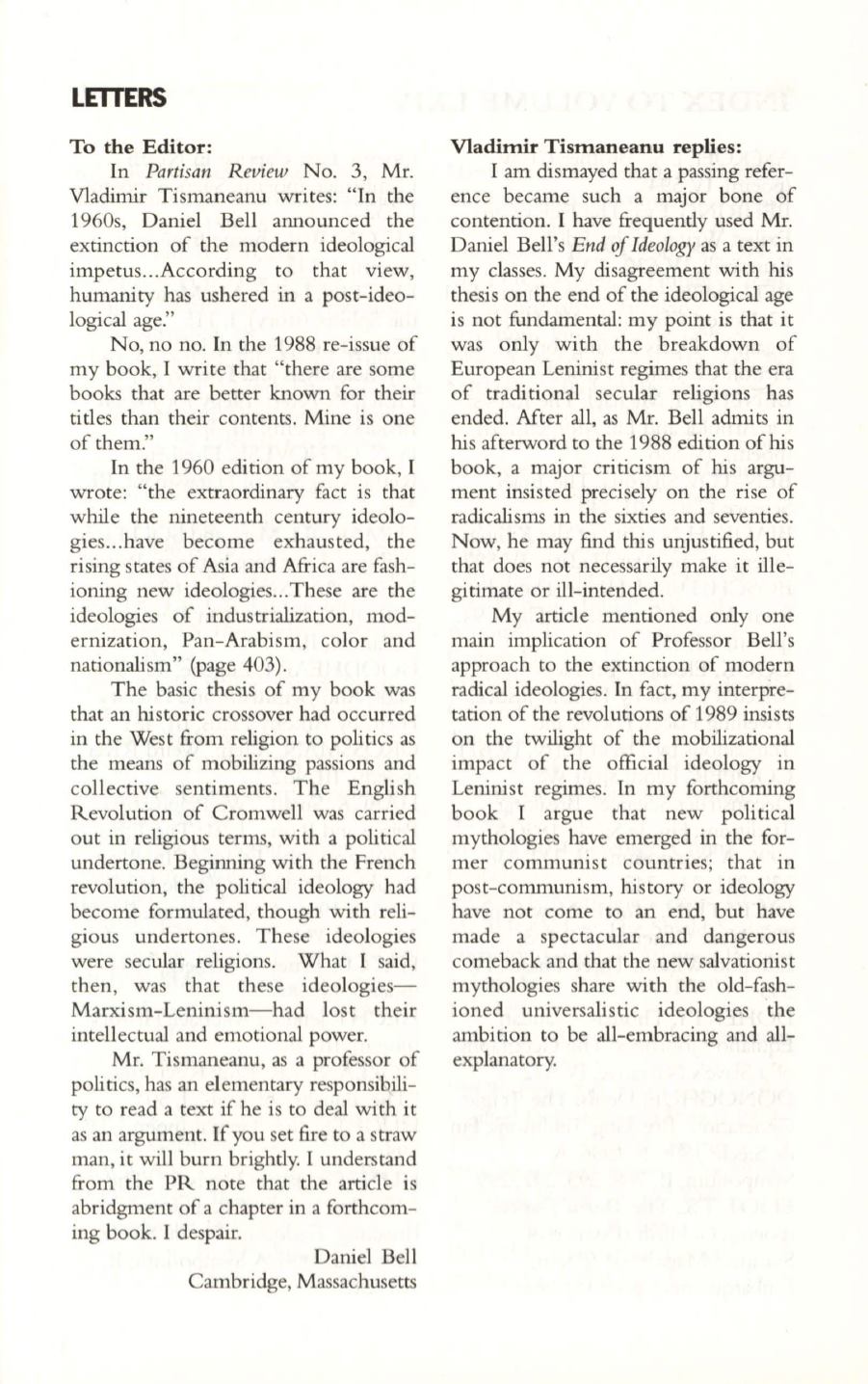
LEITERS
To the Editor:
In
Partisan R eview
No.3, Mr.
Vladimir Tismaneanu writes: "In the
1960s, Daniel Bell announced the
extinction of the modern ideological
impetus...According to that view,
humanity has ushered in a post-ideo–
logical age."
No, no no. In the 1988 re-issue of
my book,
r
write that "there are some
books that are better known for their
titles than their contents. Mine is one
of them."
In the 1960 edition of my book, I
wrote: "the extraordinary fact is that
while the nineteenth century ideolo–
gies...have become exhausted, the
rising states of Asia and Africa are fash–
ioning new ideologies...These are the
ideologies of industrialization, mod–
ernization, Pan-Arabism, color and
nationalism" (page 403) .
The basic thesis of my book was
that an historic crossover had occurred
in the West from religion to politics as
the means of mobilizing passions and
collective sentiments. The English
Revolution of Cromwell was carried
out in religious terms, with a political
undertone. Beginning with the French
revolution, the political ideology had
become formulated, though with reli–
gious undertones. These ideologies
were secular religions. What I said,
then, was that these ideologies–
Marxism-Leninism-had lost their
intellectual and emotional power.
Mr. Tismaneanu, as a professor of
politics, has an elementary responsibili–
ty to read a text if he is to deal with it
as an argument. If you set fire to a straw
man, it will burn brightly. I understand
from the PR note that the article is
abridgment of a chapter in a forthcom–
ing book. I despair.
Daniel Bell
Cambridge, Massachusetts
Vladimir Tismaneanu replies:
I am dismayed that a passing refer–
ence became such a major bone of
contention. I have frequently used Mr.
Daniel Bell's
End
of
Ideology
as a text in
my classes. My disagreement with his
thesis on the end of the ideological age
is not fundamental: my point is that it
was only with the breakdown of
European Leninist regimes that the era
of traditional secular religions has
ended. After all, as Mr. Bell admits in
his afterword to the 1988 edition of his
book, a major criticism of his argu–
ment insisted precisely on the rise of
radicalisms in the sixties and seventies.
Now, he may find this unjustified, but
that does not necessarily make it ille–
gitimate or ill-intended.
My article mentioned only one
main implication of Professor Bell's
approach to the extinction of modern
radical ideologies. In fact, my interpre–
tation of the revolutions of 1989 insists
on the twilight of the mobilizational
impact of the official ideology in
Leninist regimes. In my forthcoming
book I argue that new political
mythologies have emerged in the for–
mer communist countries; that in
post-communism, history or ideology
have not come to an end, but have
made a spectacular and dangerous
comeback and that the new salvationist
mythologies share with the old-fash–
ioned universalistic ideologies the
ambition to be all-embracing and all–
explanatory.


